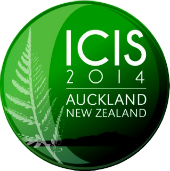IS in Healthcare
There continues to be demand upon healthcare systems globally to improve the quality of medical care whilst containing growing costs of healthcare. Information Systems (IS) can play a central role in the processes related to reforming both clinical and non-clinical procedures. The new health IT opportunities are not limited to administrative and medical record systems, but also include greater access to and by patients through remote monitoring, support for personalised medicine, smart phones, blue-tooth enabled medical devices, telemedicine, etc. that have the potential for transforming how healthcare is delivered and how providers manage clinical and non-clinical aspects of the healthcare delivery.
Despite widespread adoption of health related IS there is continued concern regarding poor system integration, significant cost over runs, low adoption as well as systems with inadequate understanding of user requirements. There is also growing concern with how to use technology to support patients in managing their own health, and in delivering personalised health. As healthcare organizations move towards patient-centered systems, further opportunities and challenges are being created to adapt various processes and practices required by new reform initiatives. Growing awareness of health inequalities is also challenging organisations – including not for profits and social enterprises – to find low cost and mobile methods of delivering health in rural regions of emerging economies, supported for example by remote monitoring services and e-consultations.
We invite theoretical and empirical submissions that leverage the multiple perspectives of information systems in the healthcare sector and which may consider, but are not limited to, the above mentioned and following topics:
· How can IS research support construction and sharing of secure comprehensive electronic health records at individual, community and population levels?
· How can IS research overcome challenges in adoption that require modifying behaviours of healthcare professionals
· How does IS influence or is influenced by organizational issues of power structures, culture and change management
· How will IT expand access to underprivileged, non tech savvy, elderly who are unwilling or unable to take advantage of technology?
· What are unique healthcare related challenges that IS can address in emerging economies?
· How can IS research promote the development, dissemination and deployment of best practices in medicine and healthcare delivery?
· How can IS support the risk sharing between healthcare insurers and providers, for example under bundled payment or accountable care organizations, in privately funded health systems such as the United States and Netherlands?
Track Chairs
|
College of William and Mary |
|
|
University of Warwick |
Associate Editors
|
Chon Abraham |
College of William and Mary |
|
Bijan Azad |
American University of Beirut |
|
Indranil Bardhan |
University of Texas at Dallas |
|
Carol Brown |
Stevens Institute of Technology |
|
Tony Cornford |
London School of Economics and Political Science |
|
Elizabeth Davidson |
University of Hawaii at Manoa |
|
Sarv Devaraj |
University of Notre Dame |
|
Samer Faraj |
McGill University |
|
Virginia Ilie |
California Lutheran University |
|
Tina Blegind Jensen |
Copenhagen Business School |
|
Seamus Kelly |
University College Dublin |
|
Stephan Kudyba |
New Jersey Institute of Technology |
|
Eric Monteiro |
Norwegian University of Science and Technology |
|
Carsten Osterlund |
Syracuse University |
|
Terence Ow |
Marquette University |
|
Roopa Raman |
Clemson University |
|
Darryl Romanow |
Duquesne University |
|
Torsten-Oliver Salge |
RWTH Aachen University |
|
Susan Sherer |
Lehigh University |
|
Sweta Sneha |
Kennesaw State University |
|
Sharon Tan |
National University of Singapore |
|
Steve Thompson |
University of Richmond |
|
Monica Chiarini Tremblay |
Florida International University |
|
Jim Warren |
University of Auckland |
|
Markos Zachariadis |
University of Warwick |
|
Kai Zheng |
University of Michigan |



